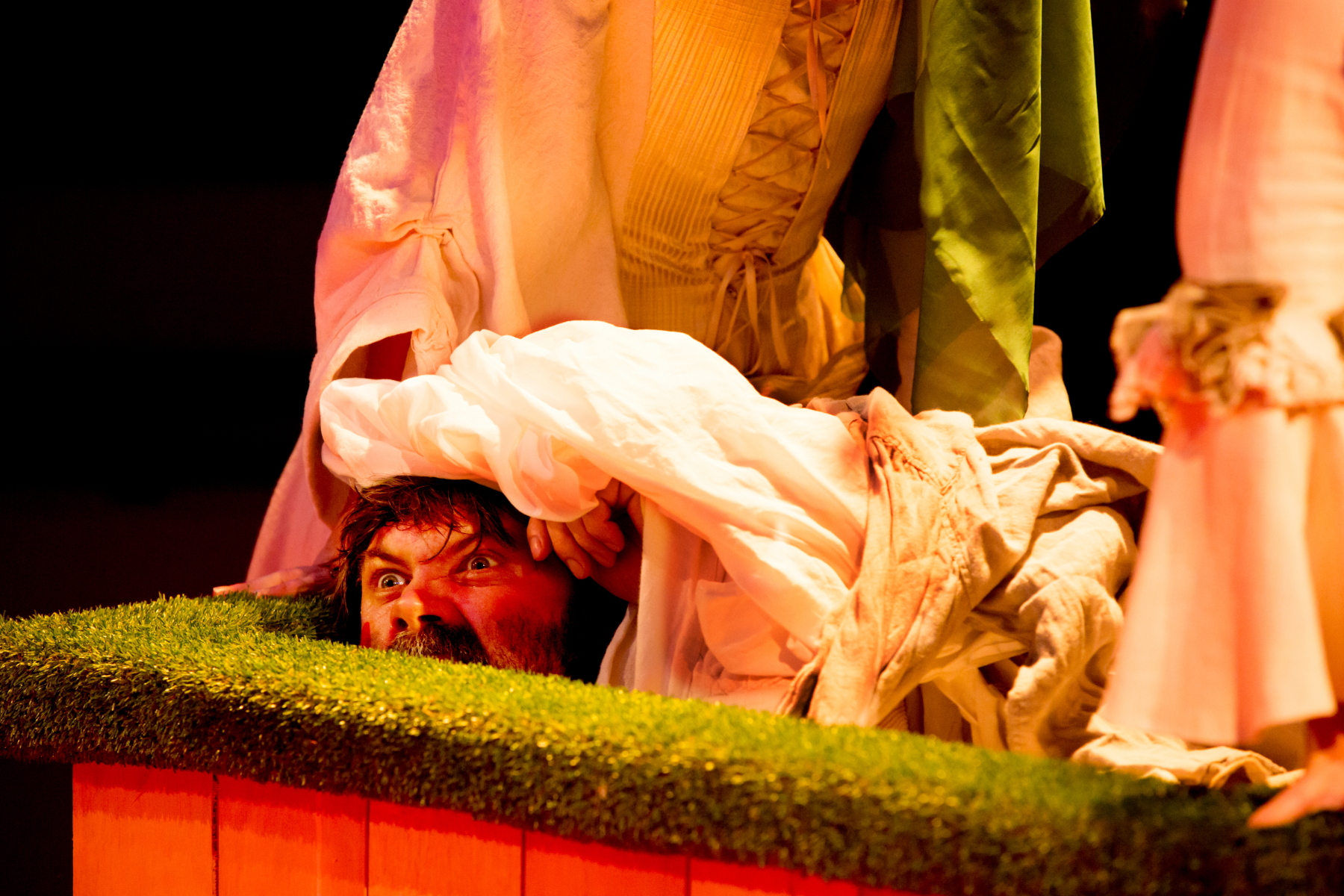‘Falstaff’, the name itself conjures up certain epithets and expectations around the notion of ‘rollicking’ and ‘full blooded’. He was Shakespeare’s great hit, a character that took on a life of its own and demanded two further plays, Henry IV part 2 and The Merry Wives of Windsor in order to satisfy the public demand. That is all the public, high and low; he was even then in 1596, the embodiment of ‘Merrie England’. The script of Henry IV pt 1 was his best seller. Like Harry Potter today he went straight into popular culture as a reference point and there, more or less, he has stayed ever since, a paragon of the same virtues (and vices); popularity breeds content.
Verdi’s Falstaff, based on the Shakespearean creation, is puffed with conceit and self-delusion, traits which lead, not to destruction, but to a well deserved come-uppance at the hands of the merry wives who manage to outsmart all the men folk at every turn. Deluded as to his powers of seduction Falstaff believes he can improve his flagging financial situation by getting into the knickers and thereby the family coffers of the Mistresses Ford and Page (Angharad Morgan and Stephanie Windsor-Lewis). However, careless in his stratagems he sends identical letters to the two women who, being friends, compare each with the other and decide to teach him a lesson.
By the end Falstaff, happy to reflect that he is not the only one to be bested by the women sums up the salutary lesson by noting something akin to ‘all the world’s a stage, full of figures of fun and it’s all a bit of a lark.’
In this co-production with The Opera Project, The Tobacco Factory pushes the boat out a little further with a relatively large and one assumes, expensive cast. To my ear the cast were faultless and the orchestra, under Jonathan Lyness, nimble in this richly textured opera. Simon Thorpe’s Falstaff, is a toper’s toper, enduringly befuddled, but with moments of clarity and sporting a prize paunch the result of multiple and continued hogsheads of this and that and overindulgence in sides of beef and traditional accompaniments. At times he seemed to forget the burden such a bulk would bestow and skipped around like a man half his weight. Notwithstanding, his character is anchored in his rich baritone voice, which in the absence of any lyrical arias does fine service to the plot.
Lyrical moments are supplied by the young lovers, Nanetta and Fenton (Joanna Foote and Robyn Lyn Evans) whose duets provide welcome relief in what is otherwise a relentlessly fast paced production. Richard Studer’s design has Herne’s Oak centre stage, which has led him to direct using a variety of circles for moving his actors around the stage. With Matt Graham’s lighting the simple device, strung with washing for branches, gets a lot of atmosphere onto the stage.
I suspect this is an opera lover’s opera and opera lovers will find this production one which fulfils expectations in all departments. ★★★★☆ Graham Wyles 17th October 2015


